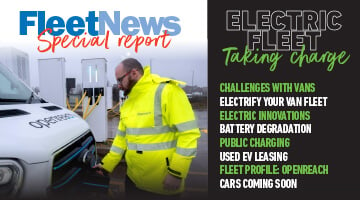Urgent Support Needed for Van and Truck Sector
Ministers are being warned that the UK’s van and truck sector requires immediate support to meet government targets for phasing out diesel vehicles. The Road Haulage Association (RHA) has released a net zero report based on a comprehensive survey of UK HGV, coach, and van operators, highlighting the significant challenges faced by fleets in decarbonizing their operations.
The Department for Transport (DfT) has confirmed that the sale of new diesel vans will end in 2035, while the phase-out date for heavy goods vehicles (HGVs) is still under debate. The previous government introduced a phase-out plan for diesel trucks, aiming to eliminate those weighing 26 tonnes or less by 2035 and all heavier trucks by 2040.

The RHA’s survey reveals that while two-fifths of van operators have already adopted or plan to adopt electric vehicles (EVs) within the next five years, more than two-thirds of HGV operators and three-quarters of coach operators have no plans to introduce EVs. The top barriers to EV adoption vary among vehicle types: van operators cite insufficient mileage (47%) and cost (35%); HGV operators are concerned about limited range (45%) and high vehicle purchase costs (38%).
Richard Smith, RHA’s managing director, emphasized that the sector needs government support to overcome these challenges. “Our sector is the lifeblood of the UK economy, yet zero-emission vehicle affordability, availability, and performance remain major barriers to decarbonization.” The RHA is calling for an urgent government action plan that includes financing options for businesses, support for low-carbon fuel alternatives, and infrastructure development for charging and refueling.
The RHA’s findings will guide future discussions with ministers as the industry works towards achieving net zero emissions. With the right support, the sector can transition to cleaner vehicles, but without decisive action, the 2035 and 2040 diesel phase-out deadlines may be unachievable.



